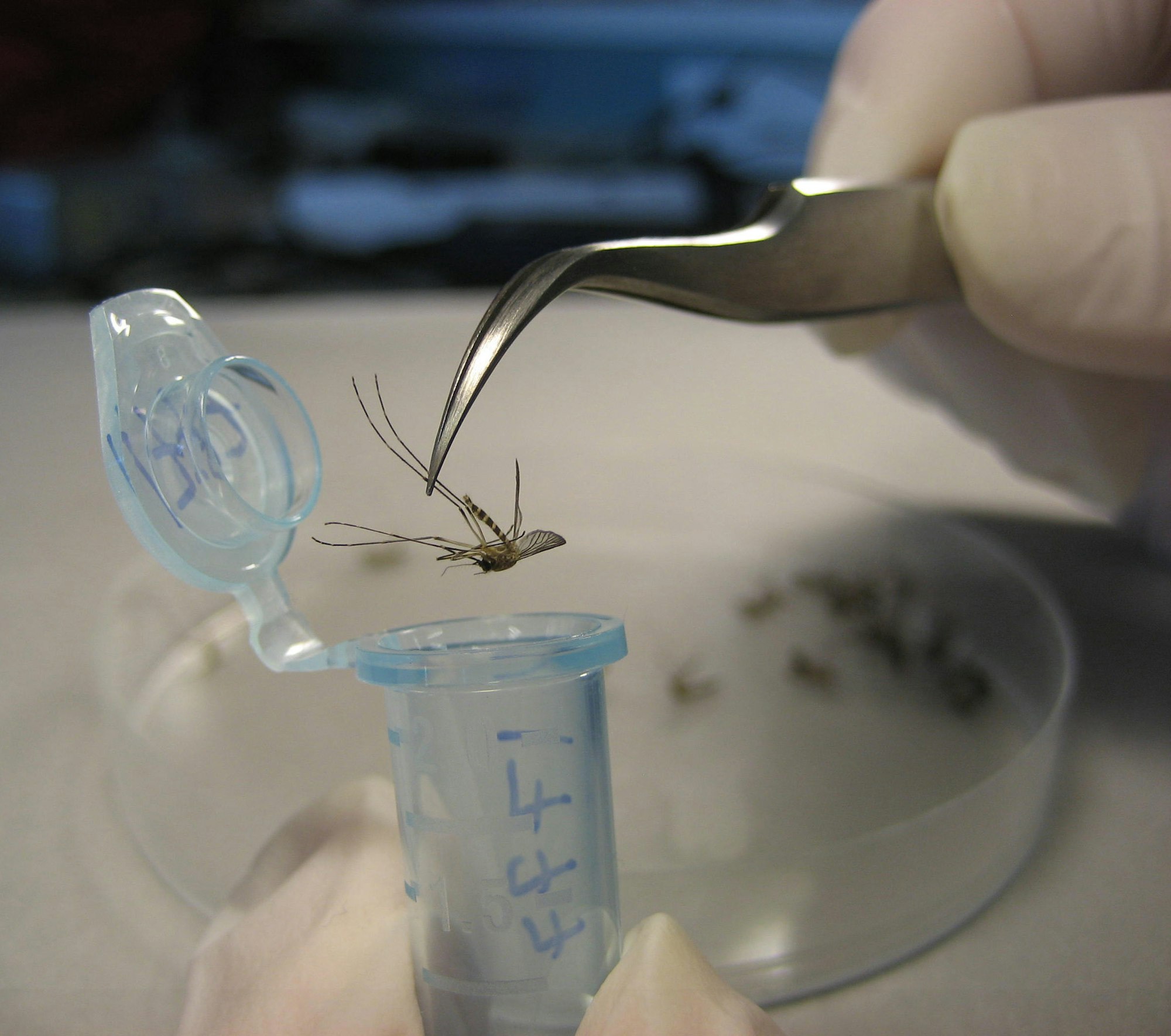Lab/Surveillance Program
Program objective
This program monitors the abundance of vectors and presence of vector-borne disease, coordinates all aspects of the District's arbovirus surveillance program, evaluates the efficacy of mosquito control materials and equipment, and collaborates with other agencies in research efforts.
Scope of program
Vector surveillance & disease testing
- Collection and identification of mosquitoes to be tested using Real-Time PCR to detect the presence of West Nile virus, St. Loius encephalitis virus, and Western equine encephalitis virus.
- Surveillance targeting invasive Aedes, including collection and identification of mosquitoes in response to imported disease cases.
- Collection, identification, and testing of ticks, using Real-Time PCR to detect Borrelia burgdorferi, the causative agent of Lyme disease, and Borrelia miyamotoi. . Please visit our Tick Surveillance page to learn more.
Research & field trials

Pooling mosquitoes for testing
- Maintain mosquito colonies in the District's insectary for pesticide resistance studies and to support the District's educational outreach program.
- Conduct field and laboratory studies to evaluate the efficacy of mosquito control products, and to help develop and improve product application strategies.
- Test and perform routine calibration of mosquito control equipment, helping to ensure that materials are properly applied in the field and comply with pesticide labeling.
- Participate in collaborative studies that pertain to disease/vector testing, field trials and other topics relevant to mosquito and vector control..
- Collaborate with state biologists to conduct disease follow-up and extended surveillance in response to tick-borne diseases.
Other services available
Insect ID: You may submit an insect identification request online by clicking here.

